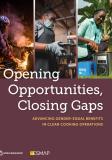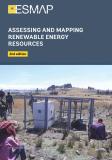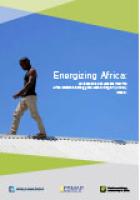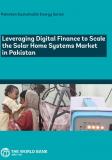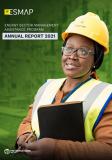Publications
In 2009, the World Bank established the Africa Renewable Energy and Access program (AFREA) to focus on the special needs of the energy sector in Africa, where limited access to modern energy constrains development and the opportunity presents itself to leapfrog to cleaner renewable energy supplies, instead of “locking in” to conventional carbon dioxide laden fossil fuels.
The Bank’s support of AFREA has allowed task teams to pilot innovative technologies and cutting-edge market-transformation programs that respond to the needs identified by energy practitioners in client countries. As such, the program has served as an incubator: promising ideas have been tested and important lessons have been learned, both from successes and from activities that fell short of expectations.
AFREA program support has been most effective when it has been linked to shaping, leveraging, and empowering the development and implementation of the Africa Energy Practice’s International Development Association (IDA) portfolio. The program is designed to help expand access to modern energy services by improving service delivery and scaling up innovations in electricity, lighting, and cooking.
In terms of conventional electrification, the program focuses on improving the pace, effectiveness, and efficiency of extending the grid to communities without access; creating enabling environments and markets for new technologies ; and finding promising avenues for meeting the needs for modern energy services using renewable sources.
This publication zooms in on the key regional programs that were supported: Lighting Africa, the Biomass Energy Initiative for Africa (BEIA), Africa Clean Cooking Energy Solutions (ACCES), the Gender and Energy Program, and the African Electrification Initiative (AEI). One chapter also documents the results of a successful national program—the Rwanda Sector-wide Approach (SWAp).
